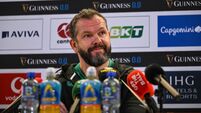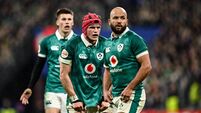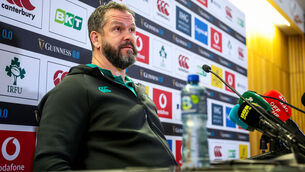All Blacks step toward regaining cup as Springboks consider Six Nations move
In the first encounter between the teams without a try since 1991 flyhalf Andrew Mehrtens kicked four penalties to the Wallabies's two from Matthew Burke.
Both sides opted for old fashioned 10 man rugby with flyhalves Mehrtens and Stephen Larkham trading kicks.














